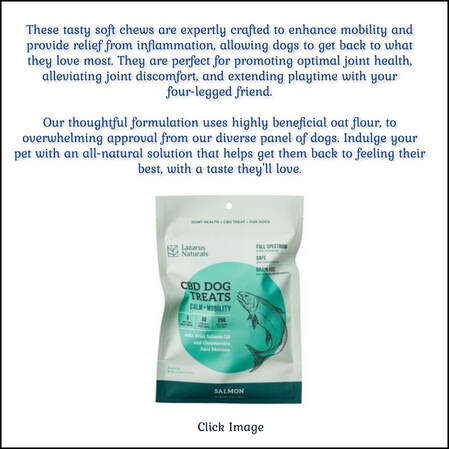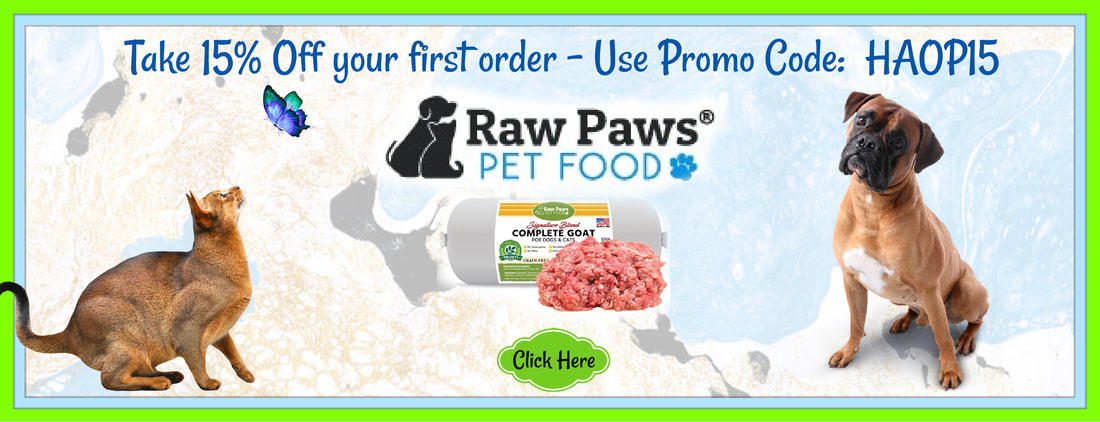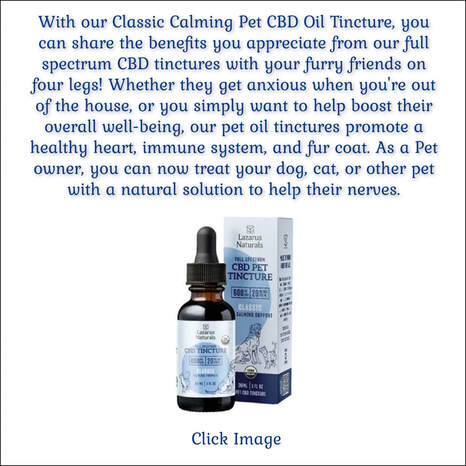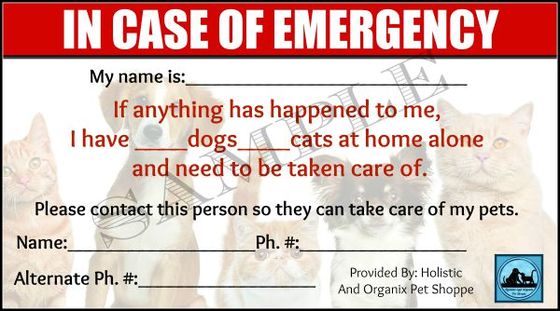APPLE CIDER VINEGAR IS A NATURAL TICK REPELLENT
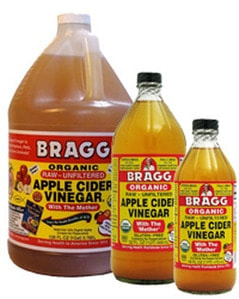
By Seventh Generation
All you need to do is pour a bit on a wash cloth or spay on from a bottle and wipe down your dog / cat every 2-3 days! Ticks are REALLY be bad this summer!
Topical applications
Apple cider vinegar can be diluted half-and-half with water for external application, and, when stronger measures are needed, it can be used full-strength.
When the male dogs attending a New England dog show experienced an incapacitating allergic reaction that made their testicles swell, Volhard declined the steroid shot offered by the attending veterinarian and instead applied ACV to the legs, testicles, and exposed skin of her male Newfoundland, Cato. The next morning he was completely well and took a High in Trial, while the other affected dogs needed weeks to recover. Volhard recommends ACV as a hot spot preventive, itch stopper, general disinfectant, virus deterrent, food poisoning preventive, and flea and tick repellent.
All you need to do is pour a bit on a wash cloth or spay on from a bottle and wipe down your dog / cat every 2-3 days! Ticks are REALLY be bad this summer!
Topical applications
Apple cider vinegar can be diluted half-and-half with water for external application, and, when stronger measures are needed, it can be used full-strength.
When the male dogs attending a New England dog show experienced an incapacitating allergic reaction that made their testicles swell, Volhard declined the steroid shot offered by the attending veterinarian and instead applied ACV to the legs, testicles, and exposed skin of her male Newfoundland, Cato. The next morning he was completely well and took a High in Trial, while the other affected dogs needed weeks to recover. Volhard recommends ACV as a hot spot preventive, itch stopper, general disinfectant, virus deterrent, food poisoning preventive, and flea and tick repellent.
|
Apple cider vinegar can be sponged onto a dog’s coat after bathing to remove soap residues and improve hair condition. Vinegar’s acidity and live enzymes are said to kill bacteria that cause flaking skin conditions. Soak the coat to the skin and let it air-dry. This same treatment is said to repel fleas and ticks.
Apple cider vinegar cools the skin when applied to burns, wounds, or hot spots. It can be massaged into sore or sprained muscles and is the foundation of many herbal liniments that relieve pain and inflammation. |
Although vinegar’s promoters recommend raw apple cider vinegar for topical and internal use, distilled white or cider vinegar can be used as a cleaning agent, reducing your dog’s exposure to cleaning chemicals. In her book, Apple Cider Vinegar, Patricia Bragg, N.D., Ph.D., lists dozens of uses for vinegar in the kitchen, bathroom, laundry room, and garden.
Apple cider vinegar may be an “unproven remedy” by FDA standards, but many dog owners swear by its internal and external benefits. Because it is inexpensive, widely available, nontoxic, and easy to use, apple cider vinegar will remain a popular remedy through the 21st century.
Apple cider vinegar may be an “unproven remedy” by FDA standards, but many dog owners swear by its internal and external benefits. Because it is inexpensive, widely available, nontoxic, and easy to use, apple cider vinegar will remain a popular remedy through the 21st century.
The research is inconclusive and there are several noted veterinary nutritionists on both sides of this issue.I believe Peter J. D’Amado is on the right track in his book, Eat Right for Your Type,” she says. “Each of the human blood types has an ideal diet, and the diet recommended for type O most closely resembles the meat-based diet on which dogs evolved. D’Amado warns that cider vinegar is very damaging to this type, and I agree with him. I happen to be a type O, and apple cider vinegar has always made me feel miserable. I never knew why until I read his book. I believe dogs have a similar reaction because even small quantities of vinegar can throw their bodies’ pH out of balance. Marina Zacharias, pet nutritionist and publisher of Natural Rearing newsletter, shares McKay’s concern about pH levels. She recommends that owners have their dogs’ blood and urine tested before adding cider vinegar to their daily diet. On the positive side... According to Wright, the incomplete digestion of protein caused by insufficient HCl is the leading cause of weak, brittle nails and hair. Nutritionally oriented physicians often recommend vinegar, lemon juice, or HCl supplements with meals for patients who complain of digestive distress or who have weak, splitting fingernails. When dog owners add small amounts of apple cider vinegar to their animals’ feed and notice a gradually improving coat, stronger nails and firmer muscle tone, the reason may be improved protein digestion resulting from an increase of acid in the stomach.
Natural Flea and Tick Remedies for Dogs
by Seventh Generation
The family dog celebrated her first birthday this week, a momentous occasion marked by lots of new chew toys and a frenzy of Frisbee catching in the yard. And while she's still very much a puppy, summer means she's facing full-grown issues with fleas, ticks, and other insect interlopers who think she's a fur-covered banquet table.
When I was a kid, my dogs had flea collars. They smelled a little funny, but they made your parasitic problems vanish when you slipped them on. Flash-forward 40 years and I've found out something I always suspected: many of the chemicals these collars contain may not be safe for animals or for anyone petting them. In fact, according to research conducted by the Natural Resources Defense Council (NRDC), chemicals in flea collars can be easily transferred to anyone or anything nearby. "High levels of pesticide residue can remain on a dog's or cat's fur for weeks after a flea collar is put on an animal," the research says.
Beware of dog, indeed. Yet a house full of fleas or ticks isn't a picnic either. So what can we do to protect our families and our pets without turning our four-legged friends into walking Superfund sites? Here's what the experts suggest:
The family dog celebrated her first birthday this week, a momentous occasion marked by lots of new chew toys and a frenzy of Frisbee catching in the yard. And while she's still very much a puppy, summer means she's facing full-grown issues with fleas, ticks, and other insect interlopers who think she's a fur-covered banquet table.
When I was a kid, my dogs had flea collars. They smelled a little funny, but they made your parasitic problems vanish when you slipped them on. Flash-forward 40 years and I've found out something I always suspected: many of the chemicals these collars contain may not be safe for animals or for anyone petting them. In fact, according to research conducted by the Natural Resources Defense Council (NRDC), chemicals in flea collars can be easily transferred to anyone or anything nearby. "High levels of pesticide residue can remain on a dog's or cat's fur for weeks after a flea collar is put on an animal," the research says.
Beware of dog, indeed. Yet a house full of fleas or ticks isn't a picnic either. So what can we do to protect our families and our pets without turning our four-legged friends into walking Superfund sites? Here's what the experts suggest:
· Comb your pet frequently using a fine-toothed flea comb. It makes their fur shine and ferrets out the fleas and ticks, which you can drown in soapy water.
· Speaking of soapy water, a bath does wonders because fleas can't survive it. You don't need nor want a flea shampoo -- that's just more of the same toxins you're trying to avoid in the first place. Fleas give up the ghost in any soapy water, so make yours as safe as possible.
· Wash pet bedding in hot water to get rid of eggs and larvae. Thoroughly vacuum any areas your cat or dog frequent, and trash your vacuum bag when you're done so fleas don't escape back into your home.
· Ticks and flea larvae hate hot, dry, exposed areas so keep the vegetation down outside and get rid of any debris in which they could live. If you have an outdoor infestation, get some organic nematodes at a garden supply center and apply them to problem areas.
Even after all this, you may still need some chemical warfare. Natural products made from cedarwood, lemongrass, peppermint, rosemary, and thyme are generally seen as safe for pets though you should always watch for allergic reactions. The NRDC has two useful resources you can use to identify acceptable offensive strategies: this handy pocket guide (pdf) will steer you to safer flea and tick ingredients while this product-by-product guide offers the lowdown on virtually every solution on the market. Use them to bite back at whatever's biting your pet and make everyone's summer a healthier one.
· Speaking of soapy water, a bath does wonders because fleas can't survive it. You don't need nor want a flea shampoo -- that's just more of the same toxins you're trying to avoid in the first place. Fleas give up the ghost in any soapy water, so make yours as safe as possible.
· Wash pet bedding in hot water to get rid of eggs and larvae. Thoroughly vacuum any areas your cat or dog frequent, and trash your vacuum bag when you're done so fleas don't escape back into your home.
· Ticks and flea larvae hate hot, dry, exposed areas so keep the vegetation down outside and get rid of any debris in which they could live. If you have an outdoor infestation, get some organic nematodes at a garden supply center and apply them to problem areas.
Even after all this, you may still need some chemical warfare. Natural products made from cedarwood, lemongrass, peppermint, rosemary, and thyme are generally seen as safe for pets though you should always watch for allergic reactions. The NRDC has two useful resources you can use to identify acceptable offensive strategies: this handy pocket guide (pdf) will steer you to safer flea and tick ingredients while this product-by-product guide offers the lowdown on virtually every solution on the market. Use them to bite back at whatever's biting your pet and make everyone's summer a healthier one.
Apple Cider Vinegar for Dogs
Every home with dogs should have apple cider vinegar. It's a remedy with multiple uses for dogs: alleviating allergies, arthritis, establishing correct pH balance. You can also give apple cider vinegar to cats and horses.
As written in an excellent, 1997 article by Wendy Volhard:
"...If your dog has itchy skin, the beginnings of a hot spot, incessantly washes its feet, has smelly ears, or is picky about his food, the application of ACV may change things around. For poor appetite, use it in the food - 1 tablespoon, two times a day for a 50 lb. dog. For itchy skin or beginning hot spots, put ACV into a spray bottle, part the hair and spray on. Any skin eruption will dry up in 24 hours and will save you having to shave the dog. If the skin is already broken, dilute ACV with an equal amount of water and spray on.
Taken internally, ACV is credited with maintaining the acid/alkaline balance of the digestive tract. To check your dog's pH balance, pick up some pH strips at the drug store, and first thing in the morning test the dog's urine. If it reads anywhere from 6.2 - 6.5, your dog's system is exactly where it should be. If it is 7.5 or higher, the diet you are feeding is too alkaline, and ACV will re-establish the correct balance.
If you have a dog that has clear, watery discharge from the eyes, a runny nose, or coughs with a liquid sound, use ACV in his or her food. One teaspoon twice a day for a 50 lb. dog will do the job.
As written in an excellent, 1997 article by Wendy Volhard:
"...If your dog has itchy skin, the beginnings of a hot spot, incessantly washes its feet, has smelly ears, or is picky about his food, the application of ACV may change things around. For poor appetite, use it in the food - 1 tablespoon, two times a day for a 50 lb. dog. For itchy skin or beginning hot spots, put ACV into a spray bottle, part the hair and spray on. Any skin eruption will dry up in 24 hours and will save you having to shave the dog. If the skin is already broken, dilute ACV with an equal amount of water and spray on.
Taken internally, ACV is credited with maintaining the acid/alkaline balance of the digestive tract. To check your dog's pH balance, pick up some pH strips at the drug store, and first thing in the morning test the dog's urine. If it reads anywhere from 6.2 - 6.5, your dog's system is exactly where it should be. If it is 7.5 or higher, the diet you are feeding is too alkaline, and ACV will re-establish the correct balance.
If you have a dog that has clear, watery discharge from the eyes, a runny nose, or coughs with a liquid sound, use ACV in his or her food. One teaspoon twice a day for a 50 lb. dog will do the job.
After your weekly grooming sessions, use a few drops in his or her ears after cleaning them to avoid ear infections. Other uses for ACV are the prevention of muscle weakness, cramps, feeling the cold, calluses on elbows and hock joints, constipation, bruising too easily, pimples on skin surfaces, twitching of facial muscles, sore joints, arthritis and pus in the urine. There are also reports that it is useful in the prevention of bladder and kidney stones.
Fleas, flies, ticks and bacteria, external parasites, ring worm, fungus, staphylococcus, streptococcus, pneumococcus, mange, etc., are unlikely to inhabit a dog whose system is acidic inside and out. Should you ever experience any of these with your dog, bathe with a nice gentle herbal shampoo -- one that you would use on your own hair -- rinse thoroughly, and then sponge on ACV diluted with equal amounts of warm water. Allow your dog to drip dry. It is not necessary to use harsh chemicals for minor flea infestations. All fleas drown in soapy water and the ACV rinse makes the skin too acidic for a re-infestation. If you are worried about picking up fleas when you take your dog away from home, keep some ACV in a spray bottle, and spray your dog before you leave home, and when you get back. Take some with you and keep it in the car, just in case you need it any time. Obviously for major infestations, more drastic measures are necessary. ACV normalizes the pH levels of the skin, makes your dog unpalatable to even the nastiest of bacteria and you have a dog that smells like a salad, a small price to pay!"
Fleas, flies, ticks and bacteria, external parasites, ring worm, fungus, staphylococcus, streptococcus, pneumococcus, mange, etc., are unlikely to inhabit a dog whose system is acidic inside and out. Should you ever experience any of these with your dog, bathe with a nice gentle herbal shampoo -- one that you would use on your own hair -- rinse thoroughly, and then sponge on ACV diluted with equal amounts of warm water. Allow your dog to drip dry. It is not necessary to use harsh chemicals for minor flea infestations. All fleas drown in soapy water and the ACV rinse makes the skin too acidic for a re-infestation. If you are worried about picking up fleas when you take your dog away from home, keep some ACV in a spray bottle, and spray your dog before you leave home, and when you get back. Take some with you and keep it in the car, just in case you need it any time. Obviously for major infestations, more drastic measures are necessary. ACV normalizes the pH levels of the skin, makes your dog unpalatable to even the nastiest of bacteria and you have a dog that smells like a salad, a small price to pay!"
The Benefits of Apple Cider Vinegar
Apple cider vinegar has excellent antibacterial and antifungal properties that give the immune system a good boost, arming your dog with the strength to ward off pests like fleas and ticks and also diseases like parvo virus in dogs and parvo in puppies.
Apple cider vinegar is also the king of skin and hair remedies. It is effective at fighting itching and scratching from allergies or bites. When applied directly to a hot spot on your dog’s skin, ACV will calm the redness and swelling all while providing your dog with some much needed relief. ACV can be poured directly on your dog’s fur after a bath and then rinsed, which will cure dandruff, rejuvenate hair and help balance the PH levels in the body.
Apple cider vinegar is a powerful detoxifying and purifying agent. It improves health and function of the vital organs such as the kidneys, bladder and liver.
Apple cider vinegar can help fight tooth decay and splitting of your dog’s toe nails which are a direct result of a lack of potassium in the body.
Potassium is also essential in replacing worn-out tissues within the body, making ACV beneficial in the treatment of arthritis.
Apple cider vinegar has also been found to be helpful in the treatment of the following: allergies, osteoporosis, cancer, candida, high cholesterol, constipation, muscle cramps, diarrhea, depression, ear discharge, eczema, fatigue, bladder problems, metabolism and stiff joints.
Apple cider vinegar is also the king of skin and hair remedies. It is effective at fighting itching and scratching from allergies or bites. When applied directly to a hot spot on your dog’s skin, ACV will calm the redness and swelling all while providing your dog with some much needed relief. ACV can be poured directly on your dog’s fur after a bath and then rinsed, which will cure dandruff, rejuvenate hair and help balance the PH levels in the body.
Apple cider vinegar is a powerful detoxifying and purifying agent. It improves health and function of the vital organs such as the kidneys, bladder and liver.
Apple cider vinegar can help fight tooth decay and splitting of your dog’s toe nails which are a direct result of a lack of potassium in the body.
Potassium is also essential in replacing worn-out tissues within the body, making ACV beneficial in the treatment of arthritis.
Apple cider vinegar has also been found to be helpful in the treatment of the following: allergies, osteoporosis, cancer, candida, high cholesterol, constipation, muscle cramps, diarrhea, depression, ear discharge, eczema, fatigue, bladder problems, metabolism and stiff joints.
Alternative solutions for fleas
I don’t think there is an area in a dog's life that takes so much attention as flea control.
These tough, little, relentless survivors called fleas will actually even eat each other when your dog or cat is not around. Fleas actually spend most of their time in their surroundings and not on the actual host (in places like your carpets, covers and any hidden crack). This is why just treating your dog (or cat) will never work. In the battle against fleas, you will need an all out attack by treating your surrounding environment as well. This can become a hard and long fight.
"Have you ever wondered why some dogs and cats have severe flea problems, while others are hardly bothered by the little pests? Fleas can be viewed as an indicator of an animal's general health. Parasites in general, and fleas in particular, are most attracted to the weak, unhealthy, or very young animal whose immune system is not functioning well. The long-term solution to a flea problem is to reduce your pet's susceptibility to fleas by improving his/her health." Jeffrey Levy, DVM
People that have dogs with fleas, skin problems, allergies, stomach problems and behavioral problems spend hundreds of dollars at the vet on so called flea prevention, antibiotics, steroids, tranquilizers, and other medications. These chemical medications and antibiotics take a serious toll on the internal organs and immune systems of our pets. It becomes a never-ending circle of medication and sickness. Flea infestations, skin problems and allergies are most often, symptoms of nutritional deficiency and toxic overload.
These tough, little, relentless survivors called fleas will actually even eat each other when your dog or cat is not around. Fleas actually spend most of their time in their surroundings and not on the actual host (in places like your carpets, covers and any hidden crack). This is why just treating your dog (or cat) will never work. In the battle against fleas, you will need an all out attack by treating your surrounding environment as well. This can become a hard and long fight.
"Have you ever wondered why some dogs and cats have severe flea problems, while others are hardly bothered by the little pests? Fleas can be viewed as an indicator of an animal's general health. Parasites in general, and fleas in particular, are most attracted to the weak, unhealthy, or very young animal whose immune system is not functioning well. The long-term solution to a flea problem is to reduce your pet's susceptibility to fleas by improving his/her health." Jeffrey Levy, DVM
People that have dogs with fleas, skin problems, allergies, stomach problems and behavioral problems spend hundreds of dollars at the vet on so called flea prevention, antibiotics, steroids, tranquilizers, and other medications. These chemical medications and antibiotics take a serious toll on the internal organs and immune systems of our pets. It becomes a never-ending circle of medication and sickness. Flea infestations, skin problems and allergies are most often, symptoms of nutritional deficiency and toxic overload.
Yes, I know, we are all bombarded almost daily with advertising to prevent fleas with toxic, lethal chemicals of all types and strengths for all sizes and breeds of pets. You most likely have used some of these chemicals that your vet has prescribed and sold to you. Are you one of those who have seen your dog go into an epileptic seizure almost immediately upon administering one of these lethal chemicals sold to the unsuspecting public to "protect" their cherished little furry companion? There are some breeds that have been killed when administered these chemical products.
You may be trying to use less of these chemicals but you are upset because your little pal's health has taken a turn for the worse. You aren't sure why, but you know it all began when a foreign material was applied or added to your dog's body. It could have been a vaccination or a chemical to kill worms, ticks, fleas or protozoa. Let’s think about this, any time a foreign material is put into or on your dog's (or cat’s or even our human body) body, there will be some kind of reaction. Most of the time the reaction happens internally and you will not even be aware of how detrimental this foreign substance really is. Just imagine how extremely toxic and lethal a chemical has to be if it is administered only once a month or once a season.
Did you know that your dog’s liver and kidneys are adversely affected by the use of flea collars, chemical de-wormers, and even heartworm drugs? These toxic chemicals, sooner or later, result in renal failure (kidney failure) and liver damage to the point of the liver becoming unable to filter the blood and then complete liver failure. Contaminated blood circulating throughout the body day after day will most definitely contribute to other more complicated health issues, such as diabetes and arthritis to name two of the most common long-term side effects.
You may be trying to use less of these chemicals but you are upset because your little pal's health has taken a turn for the worse. You aren't sure why, but you know it all began when a foreign material was applied or added to your dog's body. It could have been a vaccination or a chemical to kill worms, ticks, fleas or protozoa. Let’s think about this, any time a foreign material is put into or on your dog's (or cat’s or even our human body) body, there will be some kind of reaction. Most of the time the reaction happens internally and you will not even be aware of how detrimental this foreign substance really is. Just imagine how extremely toxic and lethal a chemical has to be if it is administered only once a month or once a season.
Did you know that your dog’s liver and kidneys are adversely affected by the use of flea collars, chemical de-wormers, and even heartworm drugs? These toxic chemicals, sooner or later, result in renal failure (kidney failure) and liver damage to the point of the liver becoming unable to filter the blood and then complete liver failure. Contaminated blood circulating throughout the body day after day will most definitely contribute to other more complicated health issues, such as diabetes and arthritis to name two of the most common long-term side effects.
Did you know that these toxic drugs cause severe skin rashes, loss of hair, epileptic seizures and even brain damage? The list of adverse side effects amazingly goes on and on. Still, unknowingly, people continue to use these drugs because they don't know there is a better, simpler, less expensive, safer way.
There are safe effective alternatives!
The great thing is that you can do it without chemicals! You can do it in natural ways the Creator has provided.
Again, flea problems do not stem from the presence of fleas, but from health related and environmental circumstances which enable fleas to thrive and reproduce. They are opportunists, preying on the weak and unhealthy. Dry flaky skin, constant shedding and a general susceptibility in the pet’s immune system provides the perfect environment.
"Good nutrition can prevent disease. Good nutrition can cure disease."
A groundswell of nutrition conscious veterinarians are beginning to recommend to their clients that they supplement their animals diet with a daily dose of flaxseed oil, probiotcs and other nutrients for optimum health and vitality. The food your little companion eats should provide all of the nutritional components necessary for all the organs and systems of a healthy body to perform in harmonious unison. A properly functioning body does an amazing job at preventing disease and healing itself, and to do this, it requires the energies and nutrients of a well-balanced diet. In terms of finding the proper diet for our companions, this means learning to look beyond our own needs, opinions, and agendas to address the natural needs of the animals whose care we are responsible for. Richard J. Holliday, DVM
There are safe effective alternatives!
The great thing is that you can do it without chemicals! You can do it in natural ways the Creator has provided.
Again, flea problems do not stem from the presence of fleas, but from health related and environmental circumstances which enable fleas to thrive and reproduce. They are opportunists, preying on the weak and unhealthy. Dry flaky skin, constant shedding and a general susceptibility in the pet’s immune system provides the perfect environment.
"Good nutrition can prevent disease. Good nutrition can cure disease."
A groundswell of nutrition conscious veterinarians are beginning to recommend to their clients that they supplement their animals diet with a daily dose of flaxseed oil, probiotcs and other nutrients for optimum health and vitality. The food your little companion eats should provide all of the nutritional components necessary for all the organs and systems of a healthy body to perform in harmonious unison. A properly functioning body does an amazing job at preventing disease and healing itself, and to do this, it requires the energies and nutrients of a well-balanced diet. In terms of finding the proper diet for our companions, this means learning to look beyond our own needs, opinions, and agendas to address the natural needs of the animals whose care we are responsible for. Richard J. Holliday, DVM
Is your dog unhealthy, suffering from poor circulation, poor digestion, over-vaccination or food allergies? If so, his ability to deal with and fight off fleas is greatly decreased. A healthy animal fed a whole food, well-balanced diet and has a strong immune system will not be bothered by these pests. This is why the first thing I always recommend is switching to a home cooked or raw diet. Providing a well balanced, un-processed diet and proper supplementation will do wonders to help your dog avoid future flea infestations as well as many other health related problems.
Probiotics and digestive enzymes are highly recommended for flea sufferers. You see, by assisting the transport of nutrients through the body and aiding in the breakdown and removal of waste products, probiotics and digestive-enzymes keep the immune system strong and help alleviate the food-allergy problems brought on by commercially fed diets.
Garlic does wonders to fight fleas. Not due to the smell, contrary to some peoples opinion. It supports the immune system, skin and liver. Just a pinch of fresh pressed or finely chopped is fine, do not give in excess.
Apple cider vinegar added to your pet’s water can also help as do B-complex vitamins, trace minerals and zinc.
Burdock root, dandelion root and red clover naturally eliminate waste from the body, which helps the immune system fight the fleas and their bites. A low-alcohol herbal tincture is best, squirted directly into your pet’s mouth or added to its water.
Probiotics and digestive enzymes are highly recommended for flea sufferers. You see, by assisting the transport of nutrients through the body and aiding in the breakdown and removal of waste products, probiotics and digestive-enzymes keep the immune system strong and help alleviate the food-allergy problems brought on by commercially fed diets.
Garlic does wonders to fight fleas. Not due to the smell, contrary to some peoples opinion. It supports the immune system, skin and liver. Just a pinch of fresh pressed or finely chopped is fine, do not give in excess.
Apple cider vinegar added to your pet’s water can also help as do B-complex vitamins, trace minerals and zinc.
Burdock root, dandelion root and red clover naturally eliminate waste from the body, which helps the immune system fight the fleas and their bites. A low-alcohol herbal tincture is best, squirted directly into your pet’s mouth or added to its water.
Transfer Factor, an all-natural substance that works by "teaching" the immune system to identify infectious agents that attack the body every day. Transfer factor provides "immune data" collected from the mother’s own immune system and then passed on to her baby. The mother transfers valuable immunity information to be used by the new life to assist in staving off infection and disease. These powerful immunity agents have been identified and are called transfer factors. To keep a body healthy, the immune system must do three very important things each time your body comes in contact with a pathogen: First it must first recognize the pathogen as a threat to the body; second, it must then attack and kill off the threat; and third, it must remember that pathogen so that your body can rid itself quickly of it the next time it is attacked.
Diatomaceous Earth (DE) when sprinkled into your pet’s coat will kill fleas. DE is composed of finely ground Diatoms which are one celled microscopic algae whose walls consist of two parts and contain a mineral called silica. Under a very strong microscope, diatoms have very sharp edges. When a flea, ant, spider, etc. comes into contact with the remaining sharp edges of the diatoms, they lacerate the waxy exoskeleton of the bug and the powder absorbs the body fluids causing death by dehydration. Sprinkled into your dog’s food it contains many essential trace minerals and will kill internal parasites (intestinal worms) as well.
Essential Oils help repel fleas. Lemongrass, Cedar, Lavender, Peppermint, Pennyroyal, etc. can all be used with a carrier oil or mixed in a dark colored, spray bottle with spring water and applied directly to the pet’s coat. You can use pure aloe vera juice and try adding lavender and/or peppermint essential oils or fresh squeezed Lemon juice and spray or pour over the dog after a bath. You can put a couple of drops of these essential oils into your hands, rub together and just rub through the dog’s coat as well. (Please Note that you need to make sure you use only 100%, pure, therapeutic grade oils on your dogs).
Diatomaceous Earth (DE) when sprinkled into your pet’s coat will kill fleas. DE is composed of finely ground Diatoms which are one celled microscopic algae whose walls consist of two parts and contain a mineral called silica. Under a very strong microscope, diatoms have very sharp edges. When a flea, ant, spider, etc. comes into contact with the remaining sharp edges of the diatoms, they lacerate the waxy exoskeleton of the bug and the powder absorbs the body fluids causing death by dehydration. Sprinkled into your dog’s food it contains many essential trace minerals and will kill internal parasites (intestinal worms) as well.
Essential Oils help repel fleas. Lemongrass, Cedar, Lavender, Peppermint, Pennyroyal, etc. can all be used with a carrier oil or mixed in a dark colored, spray bottle with spring water and applied directly to the pet’s coat. You can use pure aloe vera juice and try adding lavender and/or peppermint essential oils or fresh squeezed Lemon juice and spray or pour over the dog after a bath. You can put a couple of drops of these essential oils into your hands, rub together and just rub through the dog’s coat as well. (Please Note that you need to make sure you use only 100%, pure, therapeutic grade oils on your dogs).
CAUTION
Essential Oils are not well tolerated by cats. Please only use 100% pure, grade A essential oils and only in very small amounts with the supervision of your holistic vet or aroma therapist.
For severe itching and inflamed or red spots from flea bites, licorice root or yucca in capsule form are both great given internally as an anti-inflammatory. A Calendula flower rinse, Rosemary or aloe juice will promote healing and help fight the itching.
Alright, with all that said, remember the flea spends 80% of his time in the surrounding environment, not on your dog.
You can treat floors, carpets and anywhere the pet sleeps by vacuuming every other day and disposing of the vacuum bag OUTSIDE. You can sprinkle DE or Boric Acid products into the carpet once a week. You can treat the area with products containing essential oils of juniper, cedar, eucalyptus, Canadian fleabane, lavender, lemongrass or citric oil. (Canadian fleabane and citrus oil contain high levels of d-Limonene, which kills fleas).
Outside you can apply nematodes to your lawn and garden and keep weeds mowed down low and keep your yard moist.
Essential Oils are not well tolerated by cats. Please only use 100% pure, grade A essential oils and only in very small amounts with the supervision of your holistic vet or aroma therapist.
For severe itching and inflamed or red spots from flea bites, licorice root or yucca in capsule form are both great given internally as an anti-inflammatory. A Calendula flower rinse, Rosemary or aloe juice will promote healing and help fight the itching.
Alright, with all that said, remember the flea spends 80% of his time in the surrounding environment, not on your dog.
You can treat floors, carpets and anywhere the pet sleeps by vacuuming every other day and disposing of the vacuum bag OUTSIDE. You can sprinkle DE or Boric Acid products into the carpet once a week. You can treat the area with products containing essential oils of juniper, cedar, eucalyptus, Canadian fleabane, lavender, lemongrass or citric oil. (Canadian fleabane and citrus oil contain high levels of d-Limonene, which kills fleas).
Outside you can apply nematodes to your lawn and garden and keep weeds mowed down low and keep your yard moist.




